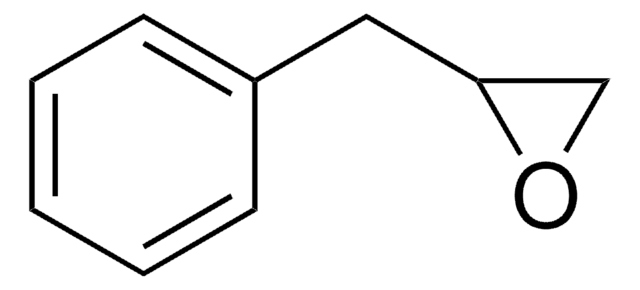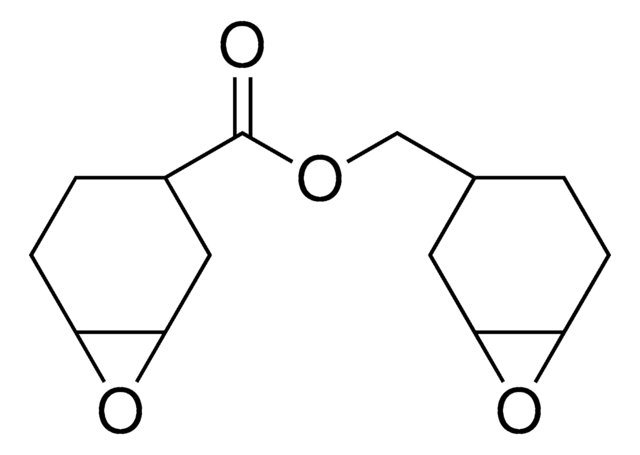578576
1,2-Epoxy-3-phenoxypropane
technical grade
Sinónimos:
2,3-Epoxypropyl phenyl ether, Glycidyl phenyl ether, Phenyl glycidyl ether
About This Item
Productos recomendados
grade
technical grade
vapor density
5.2 (vs air)
vapor pressure
0.03 mmHg ( 20 °C)
refractive index
n20/D 1.53 (lit.)
n20/D 1.530 (lit.)
bp
245 °C (lit.)
mp
3.5 °C (lit.)
density
1.109 g/mL at 25 °C (lit.)
SMILES string
C1OC1COc2ccccc2
InChI
1S/C9H10O2/c1-2-4-8(5-3-1)10-6-9-7-11-9/h1-5,9H,6-7H2
InChI key
FQYUMYWMJTYZTK-UHFFFAOYSA-N
¿Está buscando productos similares? Visita Guía de comparación de productos
signalword
Danger
Hazard Classifications
Acute Tox. 4 Inhalation - Aquatic Chronic 3 - Carc. 1B - Muta. 2 - Skin Irrit. 2 - Skin Sens. 1 - STOT SE 3
target_organs
Respiratory system
Storage Class
6.1C - Combustible acute toxic Cat.3 / toxic compounds or compounds which causing chronic effects
wgk_germany
WGK 3
flash_point_f
237.2 °F - closed cup
flash_point_c
114 °C - closed cup
ppe
Eyeshields, Faceshields, Gloves, type ABEK (EN14387) respirator filter
Elija entre una de las versiones más recientes:
Certificados de análisis (COA)
¿No ve la versión correcta?
Si necesita una versión concreta, puede buscar un certificado específico por el número de lote.
¿Ya tiene este producto?
Encuentre la documentación para los productos que ha comprado recientemente en la Biblioteca de documentos.
Los clientes también vieron
Nuestro equipo de científicos tiene experiencia en todas las áreas de investigación: Ciencias de la vida, Ciencia de los materiales, Síntesis química, Cromatografía, Analítica y muchas otras.
Póngase en contacto con el Servicio técnico












